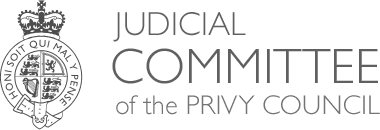Role of the JCPC
The Judicial Committee of the Privy Council is the highest court of appeal for many Commonwealth countries, as well as the United Kingdom’s overseas territories, crown dependencies, and military sovereign base areas.
It also hears very occasional appeals from a number of ancient and ecclesiastical courts. These include the Church Commissioners, the Arches Court of Canterbury, the Chancery Court of York, prize courts and the Court of Admiralty of the Cinque Ports.
- United Kingdom appeals
- Crown dependencies
- Commonwealth appeals
- Overseas territories and sovereign base appeals
- Appeals to local head of state
The Judicial Committee hears domestic appeals to His Majesty in Council as follows:
- the Disciplinary Committee of the Royal College of Veterinary Surgeons
- against certain schemes of the Church Commissioners under the Pastoral Measure 1983
The Judicial Committee also has the following rarely-used jurisdictions:
- appeals from the Arches Court of Canterbury and the Chancery Court of York in non-doctrinal faculty causes
- appeals from Prize Courts
- disputes under the House of Commons Disqualification Act
- appeals from the Court of Admiralty of the Cinque Ports
- appeals from the High Court of Chivalry
Additionally, His Majesty has the power to refer any matter to the Judicial Committee for "consideration and report" under section 4 of the Judicial Committee Act 1833.
Under the Constitutional Reform Act 2005, devolution cases from the regions of the United Kingdom are now heard by The Supreme Court.
Crown dependencies
- Jersey
- Guernsey
- Isle of Man
Commonwealth appeals
To bring an appeal to the Judicial Committee of the Privy Council, you must have been granted leave by the lower court whose decision you are appealing. In the absence of leave, permission to appeal must be granted by the Board. In some cases there is an appeal as of right and a slightly different procedure applies.
In civil cases, the lower court will generally grant you leave to appeal if the court is satisfied that your case raises a point of general public importance.
In criminal cases, it is unusual for the lower court to have the power to grant leave unless your case raises questions of great and general importance, or there has been some grave violation of the principles of natural justice.
Appeal therefore lies from these countries:
- Antigua and Barbuda
- The Bahamas
- Cook Islands and Niue (Associated States of New Zealand)
- Grenada
- Jamaica
- St Christopher and Nevis
- Saint Vincent and the Grenadines
- Tuvalu
St Lucia left the jurisdiction of the JCPC with effect from 20 July 2023
Legislation enacted in New Zealand in October 2003 abolished appeals from New Zealand to the Privy Council in respect of all cases heard by the Court of Appeal of New Zealand after the end of 2003. This New Zealand legislation does not affect rights of appeal from the Cook Islands and Niue.
Appeal to the Judicial Committee also lies from the following independent republics within the Commonwealth
- the Republic of Trinidad and Tobago
- Kiribati
- Mauritius
The circumstances in which appeals may be brought are similar to those in which appeals lie to His Majesty in Council as above, except that from Kiribati an appeal lies only in cases where it is alleged that certain constitutional rights of any Banaban or of the Rabi Council have been or are likely to be infringed.
Overseas territories and sovereign base appeals
The Judicial Committee hears appeals from the following overseas territories of the United Kingdom:
- Anguilla
- Bermuda
- British Antarctic Territory
- British Indian Ocean Territory
- British Virgin Islands
- Cayman Islands
- Falkland Islands
- Gibraltar
- Montserrat
- Pitcairn Islands
- St Helena, Ascension and Tristan da Cunha
- Turks and Caicos Islands
Additionally, appeals are heard from sovereign base areas in Cyprus:
- Akrotiri
- Dhekelia
Appeals to local head of state
In civil cases only, an appeal lies to the Judicial Committee from the Court of Appeal of Brunei to the Sultan and Yang di-Pertuan.
By agreement between His Majesty and the Sultan these appeals are heard by the Judicial Committee, whose opinion is reported to the Sultan instead of to His Majesty.
